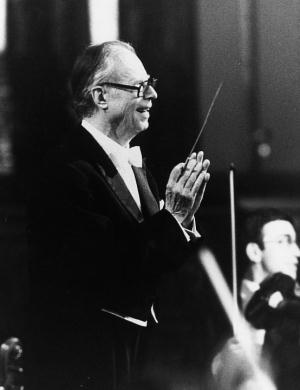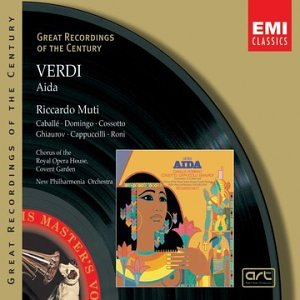Karl Böhm's Clemency
 Karl Böhm is one of those conductors that is famous-enough, but always manages to stay solidly in the shadow of another. For him, Herbert von Karajan was the German conductor of the post-war period. Wilhelm Furtwängler lived until 1954, and - his powers largely undiminished if his spirit was broken - endured the ascendancy of Von Karajan. On the other hand, Böhm did his thing, turning in some fantastic recordings, quietly. His Bayreuth recording of Der Ring des Nibelungen is second only to Solti for modern recordings. His Die Walküre may be the finest account ever rendered (though Boulez' own Bayreuth reading is a close second). His Tristan und Isolde has been the default stereo set since it was released.
Karl Böhm is one of those conductors that is famous-enough, but always manages to stay solidly in the shadow of another. For him, Herbert von Karajan was the German conductor of the post-war period. Wilhelm Furtwängler lived until 1954, and - his powers largely undiminished if his spirit was broken - endured the ascendancy of Von Karajan. On the other hand, Böhm did his thing, turning in some fantastic recordings, quietly. His Bayreuth recording of Der Ring des Nibelungen is second only to Solti for modern recordings. His Die Walküre may be the finest account ever rendered (though Boulez' own Bayreuth reading is a close second). His Tristan und Isolde has been the default stereo set since it was released.However, his Mozart was his specialty. His Die Zauberflöte is a reference recording. His other operas are similarly fantastic. The opera I am discovering, through Böhm, is La clemenza di Tito. His 1979 set has Peter Schreier and Teresa Berganza. Schreier is my favorite tenor (because of, not despite, his cerebral bearing), and Berganza's Carmen under Abbado is my gold standard. Böhm keeps things flowing nicely and he shows his prudent judgment and deft sensitivity. The opera is a sleeper: late-stage Mozart, with all the charm and intelligence of that period. It isn't Le nozze, but neither is Zauberflöte. The plot is suitably complicated. The music is rich and grand. This is Mozart as he should be, not some sort of soundtrack for a Salzburg marzipan box.
Böhm is the sort of conductor that can take a second-tier score and turn it into what it is. He does this here.

